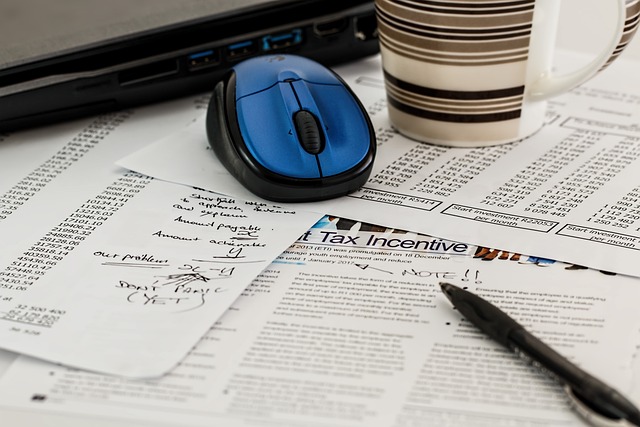Published on May 15, 2025
Tax season often brings stress. Many people wait until the last moment to file their taxes, leading to errors, missed deductions, and unnecessary penalties. If you prepare for 2025 taxes early, you can reduce stress, avoid problems, and even save money.

If you want to explore ways to increase your wealth alongside tax planning, check out this guide on Stock Market Trends.
The earlier you start, the easier tax filing will be. Waiting until the deadline can cause rushed calculations and increase the risk of financial mistakes. The IRS encourages early filing because it reduces identity theft risks and ensures quicker refunds.
Why You Should Prepare for 2025 Taxes Now
Planning your taxes in advance can make the process smooth. There are many benefits to early preparation:
- Reduce Errors: Filing early allows you to double-check calculations.
- Maximize Tax Savings: You can claim deductions and credits that lower tax liabilities.
- Avoid Late Penalties: Missing deadlines leads to fines and interest on unpaid taxes.
- Prevent Identity Theft: Early filing minimizes the risk of tax-related fraud.
- Stay Organized: You can collect documents without rushing.
By preparing early, you can take advantage of tax strategies to reduce your taxable income. One great option is starting a side business—learn more about it here.
Step-by-Step Guide to Prepare for 2025 Taxes
To Prepare for 2025 Taxes properly, follow these steps:
1. Gather Important Documents
Organizing financial records is key to error-free tax filing. Make sure to collect:
- Income Statements: W-2 forms for employees, 1099 forms for freelancers, investment earnings reports.
- Expense Receipts: Medical bills, charitable donations, mortgage interest payments.
- Bank Statements: Savings account interest, stock investments, retirement contributions.
- Loan Documents: Student loans, home loans, personal loans.
- Previous Tax Returns: Reviewing past filings can help avoid mistakes.
Keeping digital copies of receipts and financial reports will also simplify tax filing.
2. Understand Tax Law Changes
Tax laws update every year, and 2025 brings some important changes. Staying informed helps you make the best tax decisions.
Some expected changes include:
- Updated Tax Brackets: Inflation impacts tax rates, so brackets will be adjusted.
- Higher Standard Deduction: More taxpayers may find it beneficial to use the standard deduction.
- New Energy Efficiency Credits: Homeowners who install solar panels may qualify for tax savings.
- Medical Expense Adjustments: The IRS may update rules regarding deductible healthcare costs.
Additionally, understanding the broader economic situation can help you plan effectively. Read more about the current economic outlook.
Visit government tax sites to stay informed.
3. Adjust Your Tax Withholdings
Adjusting withholdings ensures that the correct amount of tax is deducted from your paycheck. Too much withholding means a large tax refund, but too little means a tax bill at the end of the year.
If your 2024 refund was large, updating your W-4 form can help you receive more money throughout 2025. If you owed taxes in 2024, increasing your withholdings can prevent a surprise bill in 2025.
4. Maximize Deductions and Credits

Tax deductions and credits lower the amount of taxable income and total tax owed.
Common Deductions
- Mortgage Interest Deduction: Homeowners can deduct interest paid on home loans.
- Student Loan Interest Deduction: Borrowers can deduct interest paid on student loans.
- Medical Expenses Deduction: Certain medical expenses may qualify for tax savings.
- Business Expenses Deduction: Self-employed individuals can deduct business costs.
Popular Tax Credits
- Child and Dependent Care Credit: Reduces taxes for parents paying child care costs.
- Education Credits: Helps students save money on tuition fees.
- Energy Efficiency Credit: Tax credit for installing solar panels or energy-saving upgrades.
For more ways to legally minimize taxes, explore biggest tax loopholes in 2025.
Claiming deductions and credits reduces your taxable income.
Smart Financial Planning for Taxes
Preparing taxes involves managing finances effectively. Here are essential tips:
Keep Track of Your Finances
Having organized financial records makes tax filing smooth. Use these strategies:
- Maintain digital and physical copies of tax documents.
- Use budgeting apps to track expenses throughout the year.
- Set reminders for tax deadlines.
If you’re interested in high-net-worth financial services, check out Best Banks for Millionaires.
Consider Hiring a Tax Professional
A tax expert can guide you through complex tax rules. They can help:
- Identify hidden deductions to save money.
- Ensure your return is filed correctly.
- Provide tax advice tailored to your situation.
Hiring a tax consultant may cost money, but the potential savings can be worth it.
File Taxes Early and Use E-Filing
Submitting tax returns early prevents delays. E-filing offers:
- Faster refunds.
- Reduced paperwork.
- Increased accuracy.
If you’re looking to maximize savings, read How to Save 100% on Taxes.
Most tax services allow online filing, making it convenient.
Trusted Resources for Tax Help
For updated tax rules, visit these reliable websites:
Frequently Asked Questions (FAQs) About Preparing for 2025 Taxes
1. Why should I start preparing for 2025 taxes early?
Starting early helps you stay organized, avoid penalties, and maximize deductions. You get more time to gather documents and review tax law changes.
2. What documents do I need to file my 2025 taxes?
You’ll need:
- W-2 forms (for employees)
- 1099 forms (for freelancers or investment income)
- Bank and investment statements
- Expense receipts (medical bills, mortgage interest, charitable donations)
- Previous tax returns for reference
3. What are the key tax law changes in 2025?
Some expected changes include:
- Adjusted tax brackets due to inflation
- Higher standard deductions
- New credits for energy-efficient home improvements
- Possible updates to medical expense deductions
4. How can I reduce my taxable income legally?
You can lower taxable income by:
- Claiming deductions for mortgage interest, student loans, medical expenses, and business costs
- Taking advantage of tax credits like education credits or energy efficiency incentives
- Contributing to retirement accounts like 401(k) or IRAs
5. What is the difference between tax deductions and tax credits?
- Tax deductions reduce the amount of income that is taxed.
- Tax credits directly reduce the amount of tax you owe.
For example, if you qualify for the Child and Dependent Care Credit, it will decrease your tax bill dollar-for-dollar.
6. Should I adjust my withholdings for 2025?
If you got a large refund in 2024, lowering your withholdings can help increase your paycheck throughout the year. If you owed taxes, adjusting your W-4 form ensures the correct amount is deducted.
7. How do I file taxes electronically?
You can file taxes online through the IRS website or use e-filing software like TurboTax, H&R Block, or a tax professional’s service. E-filing is faster and reduces errors.
8. Is hiring a tax professional necessary?
If your tax situation is complicated—such as owning multiple businesses or investments—a tax professional can help maximize deductions and ensure accurate filing.
9. What happens if I file taxes late?
Filing late results in penalties and interest charges on any unpaid taxes. The IRS may also withhold refunds if you owe back taxes.
10. How can I avoid tax fraud or scams?
- File your taxes early to prevent identity theft
- Use secure, IRS-approved tax filing platforms
- Be cautious with personal information online
- Watch out for fake IRS emails or phone scams
11. How do I track my tax refund after filing?
You can check the status of your refund on the IRS “Where’s My Refund” tool. E-filed tax returns typically get processed faster than paper filings.
12. Where can I find reliable tax advice for 2025?
Visit trusted sources like: